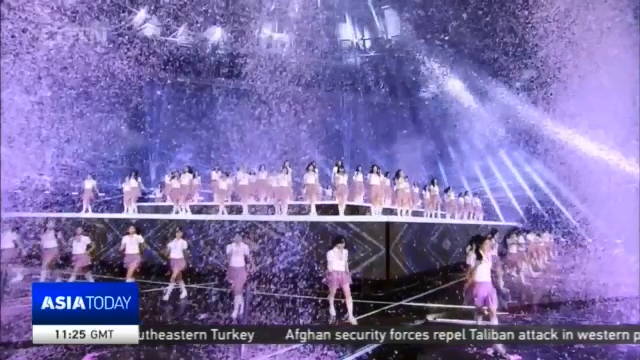
19:48, 04-Oct-2018
Asian Idol Industries: South Korea sees soft power opportunity, as neighbors mimic K-pop's business model
Updated
19:05, 07-Oct-2018
03:47

K-pop's musical style is a mash-up of diverse genres, from rock to hip-hop and R&B. What makes K-pop unique though is its use of the "idol system", which incorporates the selection process for artists into the entertainment business model. As the system takes root in more and more countries, South Korea sees an opportunity to flex its soft power muscles. But the proliferation of the idol industry is also kicking up some unexpected challenges. CGTN's Joseph Kim explains.
K-pop is creating a buzz all over the world.
Fan from Japan: "K-pop."
Fans from Austria: "K-pop."
Fans from China: "I love K-pop!"
So what exactly is it?
K-pop isn't a style of music or even a genre.
And although it's called K-pop, it's hard to say it's completely Korean.
The music takes influence from rock, hip-hop and R&B—to the point some even call it appropriation.
And, the K-pop experience is just as much visual as it is about the sound.
To get a better understanding, I met up with Bernie Cho, a music industry executive and here's how he explained it.
BERNIE CHO CEO, DFSB COLLECTIVE "I look at K-pop as sort of being like sonic bibimbap, in the sense that you have all these different elements that you're familiar with, that you like, these different ingredients. So whether, you know, it's a certain flavor to a certain genre, individually, you know what it is but when it's mixed up a certain way, and a little secret sauce, special sauce, spicy sauce is thrown on, all of a sudden, what looks so familiar, all of a sudden, becomes very unique. And in this case, uniquely Korean."
Part of that "special sauce" is the discovery and development process known as the "idol system".
The "idol system" recruits talent at a young age and trains them for years to become stars.
The system is best encapsulated by the music survival shows Produce 101 and Produce 48—taking different influences then claiming it as Korean.
The program pits aspiring trainees in the "idol system" against one another, then gathers the winners to form a super group.
It's been a hit in South Korea, and now, is being picked up across Asia.
PROFESSOR LEE GYU-TAG GEORGE MASON UNIVERSITY "Produce 101 is a mirror of K-pop. Even though it received more influence musically from the US, in terms of its business model, K-pop followed a lot of what Japanese idol pop music did. Although the genre was made with these influences, it developed them further and in a different light to become more popular globally. That's why, now, even J-pop tries to follow what K-pop is doing. Produce 48 reflects this."
JOSEPH KIM SEOUL "Right now, K-pop is enjoying widespread acclaim. After Psy's 'Gangnam Style' became a global hit, other acts such as BTS and TWICE are now leading the charge. Seeing this success, other countries around Asia have been working hard to challenge South Korea's reign as the pop factory giant."
But the South Korean government isn't too concerned.
KIM YONG-RAK, PRESIDENT KOREA FOUNDATION FOR INTERNATIONAL CULTURAL EXCHANGE "We're not worried at all that other countries are copying or imitating Korea nor do we think it's wrong. We see it as them taking Korean culture and creatively developing it, then spreading it all over the world."
Despite South Korea's confidence, there will be more challenges for the industry moving forward, especially since K-pop is unique for how it mixes and matches different styles—not being a genre in it of itself. And it raises the question, how long will South Korea be able to maintain its dominance as a pop powerhouse?
Joseph Kim, CGTN, Seoul.

SITEMAP
Copyright © 2018 CGTN. Beijing ICP prepared NO.16065310-3
Copyright © 2018 CGTN. Beijing ICP prepared NO.16065310-3